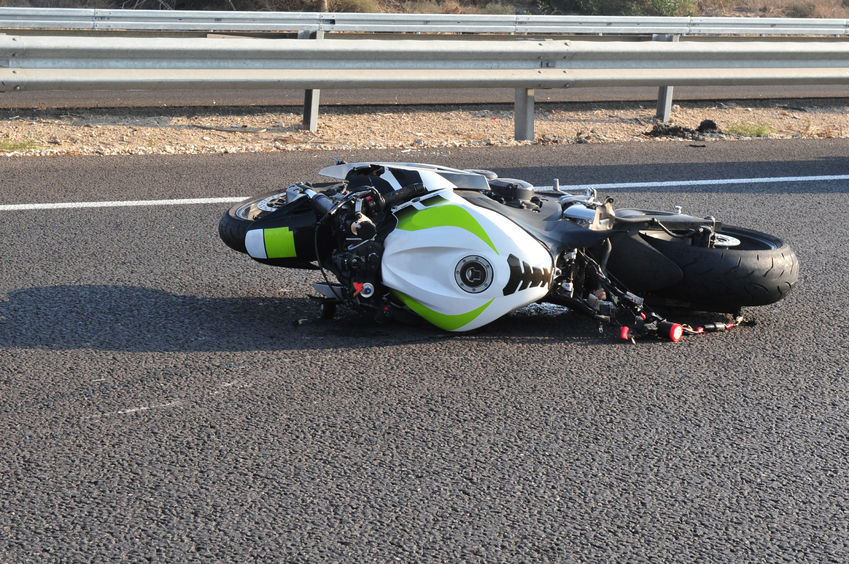Rear-End Motorcycle Accident Liability
September 7, 2018 | Category: Motorcycle Accidents | ShareFall and winter are typically busy seasons for planned motorcycle activities as our population increases. This is also a time when there may be an increase in rear-end motorcycle accidents.
 The Governors’ Highway Safety Association (GHSA) reported in 2017 that motorcyclists continue to account for a considerable proportion of U.S. road trauma. According to the National Highway Traffic Safety Administration’s National Center for Statistics and Analysis (NHTSA’s NCSA), in 2016, there were 5,286 motorcyclists killed on U.S. roadways; this is 28 times more frequently than vehicle passenger fatalities, when accounting for vehicle miles traveled. An NHTSA research study says that more than one quarter of motorcycle accidents are rear-end collisions, especially while a rider is stuck in traffic.
The Governors’ Highway Safety Association (GHSA) reported in 2017 that motorcyclists continue to account for a considerable proportion of U.S. road trauma. According to the National Highway Traffic Safety Administration’s National Center for Statistics and Analysis (NHTSA’s NCSA), in 2016, there were 5,286 motorcyclists killed on U.S. roadways; this is 28 times more frequently than vehicle passenger fatalities, when accounting for vehicle miles traveled. An NHTSA research study says that more than one quarter of motorcycle accidents are rear-end collisions, especially while a rider is stuck in traffic.
When rear-end car accidents occur, they are typically less severe than some other accidents, as these vehicles have a buffer between them and the other vehicle. However, this is not the case for motorcyclists. Even at low speeds, rear-end crashes can result in disastrous consequences.
If a motorcyclist is hit from behind, he or she can be propelled upward before landing on the ground. However, if a motorcyclist hits the back of another vehicle, he or she can easily fall from, or fly off, a motorcycle.
Serious injuries occur to motorcyclists not only because of their vehicle vulnerability, but also because they do not have seatbelts. The injuries that often occur in rear-end motorcycle accidents include:
- Back and neck injuries
- Broken bones commonly in the wrists, hands and arms
- Shoulder injuries
- Facial and dental injuries
- Spinal cord injuries
- Traumatic brain injuries
- Road rash
- Internal injuries
- Amputations
Injured motorcycle riders may be compensated for their losses associated with rear-end crashes. These losses may include past, current, and future:
- Medical expenses
- Loss of income
- Out-of-pocket expenses
- Physical pain and suffering
How is negligence determined in rear-end crashes?
Negligence in rear-end motorcycle accidents is often borne by the other driver’s actions, or inactions. These may include changing lanes in front of a motorcyclist, tailgating, excessive speed, distracted driving, and/or drunk driving.
“The questions of negligence and legal liability in personal injury cases are complicated and require the assistance of experienced attorneys. Should you or a loved one be injured in a motorcycle accident, please contact us. We are available 24/7, and there are no costs or attorney fees unless we make a monetary recovery for you,” said Fort Myers Motorcycle Accident Attorney, Randall Spivey of Spivey Law Firm, Personal Injury Attorneys, P.A.
Fort Myers Motorcycle Accident Attorney, Randall L. Spivey is a Board Certified Trial Attorney – the highest recognition for competence bestowed by the Florida Bar and a distinction earned by just one (1%) percent of Florida attorneys. He has handled over 2,000 personal injury and wrongful death cases throughout Florida. For a free and confidential consultation to discuss your legal rights, contact the Spivey Law Firm, Personal Injury Attorneys, P.A., in Lee County at 239.337.7483 or toll free at 1.888.477.4839, or by email to Randall@SpiveyLaw.com. Visit SpiveyLaw.com for more information. You can contact Spivey Law Firm, Personal Injury Attorneys, P.A.in Charlotte County at 941.764.7748 and in Collier County 239.793.7748.

